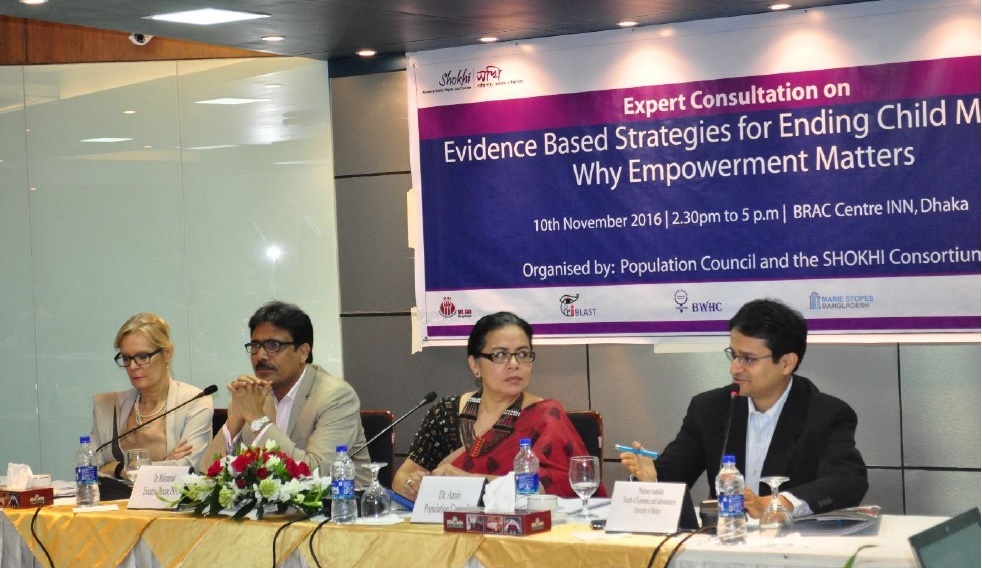The SHOKHI Consortium together with Population Council jointly convened an expert consultation on the topic ‘Evidence Based Strategies for Ending Child Marriage: Why Empowerment Matters’ at BRAC Centre Inn, Dhaka on 10 November.

The participants included Dr Sajeda Amin, Senior Associate at Population Council, Sara Hossain, Honorary Executive Director of BLAST, Leoni Cuelenare, the Ambassador of the Netherlands, Dr Zulfiqar Ali, Research Director of BRAC International, Professor Niaz Asadullah from the University of Malaya and Integgra, as well as other academics, researchers and practitioners.
They called for support for a multi‐dimensional, longer‐term and holistic approach on the issue taking into account dimensions such as realized rights, health and access to education; rather than an exclusively cost‐benefit approach using single‐focus indicators without taking into account the intrinsic value of adolescent agency and voice.
Dr Amin emphasized that “Bangladesh has a lot to offer towards promoting a theory of change and on what works to influence decisions about child marriage. Collectively,we have a large body of experience and emerging evidence based on what works for whom. It is time now to think about how to apply this towards identifying strategic priorities”.
Sara Hossain discussed the need to use the law as a strategy to address child marriage, not only by focusing on punishment in individual cases, but by informing campaigns for prevention of child marriage. She urged the need for campaigners to focus on seeking consistency in the range of laws that affect the age of majority including the Majority Act and the Penal Code, as well as discriminatory personal laws that allow for child marriage. She argued that law enforcement should focus on offences of sexual violence such as marital rape, stalking and sexual harassment, in addition to child marriage and forced marriage.

Professor Asadullah discussed financial incentive-based interventions to child marriage, and argued against a quick fix solution conceived through a lens of poverty and finance. His presentation focused on qualitative evidence and drew on a review of recent studies on child marriage, highlighting how social customs, rather than financial constraints, govern marriage decisions in rural Bangladesh.
The SOKHI consortium is led by BLAST (Bangladesh Legal Aid and Services Trust) and includes Bangladesh Women's Health Coalition, Marie Stopes and We Can.
Press Coverage:


